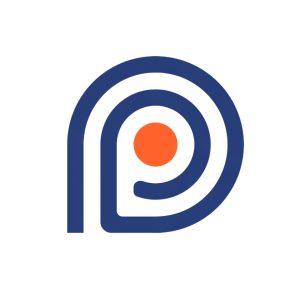Predictive Oncology validates Discovery 21 proof-of-concept campaign
Predictive Oncology (NASDAQ: POAI) has achieved a significant milestone with its PeDAL platform through the Discovery 21 campaign, which validated the platform's ability to make high-confidence predictions on ovarian tumor samples. The PeDAL platform demonstrated a drug response prediction accuracy of 91.8% across 175 FDA-approved drugs and 130 tumor samples. This breakthrough is expected to attract pharmaceutical partnerships and enhance drug discovery efficiency, aligning with the company’s mission of optimizing cancer therapies.
- PeDAL predicted drug responses with 91.8% accuracy.
- Discovery 21 validation confirms PeDAL's effectiveness with real-world data.
- Potential for partnerships with pharmaceutical companies to monetize the technology.
- Risks associated with entering partnerships with biopharmaceutical companies.
- Future evaluations may not yield results as favorable as preliminary findings.
- Concerns regarding the recent acquisition of zPREDICTA and its operational integration.
Insights
Analyzing...
Predictive Oncology's Discovery 21 campaign evaluated the ability of its PeDAL® platform to make high-confidence predictions in ovarian tumor samples. Subsequent validation confirmed the accuracy and reproducibility of these predictions.
MINNEAPOLIS, March 24, 2022 (GLOBE NEWSWIRE) -- Predictive Oncology (NASDAQ: POAI) achieved a key milestone toward monetizing its unique approach to leverage artificial intelligence (AI) in oncology drug discovery. Earlier this year, Predictive Oncology’s Discovery 21 proof-of-concept campaign demonstrated the ability of its Patient-centric Discovery by Active Learning (PeDAL) platform to make high-confidence predictions of drug response on ovarian tumors samples. The results from Discovery 21 are now validated: PeDAL accurately and reproducibly predicted drug response results.
“These results demonstrate that PeDAL works with real world drug compounds and tumor samples,” J. Melville (Mel) Engle, Predictive Oncology’s Chairman and Chief Executive Officer. “We expect that pharma will be keen to use this technology, which increases the probability of technical success and lowers both the cost and time of bringing new drugs to market. This in turn will bring us closer to our overall mission of determining optimal therapies for the treatment of cancer.”
Discovery 21 tested PeDAL’s ability to make drug response predictions, starting with an experimental space of 175 FDA-approved cancer drugs and tumor samples from 130 ovarian cancers. “POAI has a database with drug response results for over 150,000 tumor samples in over 137 tumor types,” said Pamela Bush, Ph.D., Senior Vice President of Strategic Sales and Business Development at Predictive Oncology. “When we combine our database with PeDAL’s proprietary AI, we have an impressive tool for predicting whether a tumor will respond to a particular drug.” In Discovery 21, PeDAL’s AI predicted whether a specific tumor sample would respond to a drug with
Predictive Oncology's PeDAL is a platform powered by machine learning that drives experimental testing to evaluate models of hundreds of diverse tumor samples against hundreds of drug compounds for early-stage drug discovery. PeDAL’s AI iteratively improves the predictive models until it reaches a specific pre-determined goal. The customizable platform can leverage incomplete data and efficiently pick the best set of experiments so it can learn from the new experimental data. By selecting key experiments, PeDAL’s AI is able to make high-confidence predictions without testing the entire experimental space, i.e., every drug with every tumor sample, thus saving time and costs to the pharmaceutical industry in selecting better drug compounds to move into clinical development. The AI component of PeDAL comes from an exclusive world-wide license from Carnegie Mellon University.
The completion of Discovery 21, and its subsequent validation, creates a path for Predictive Oncology to monetize its AI-driven approach, which brings efficiency to the drug discovery process. This serves to secure a potentially sizable piece of the rapidly growing market of drug discovery.
About Predictive Oncology
Predictive Oncology (NASDAQ: POAI) is a knowledge-driven company focused on applying artificial intelligence to develop personalized cancer therapies, which can lead to more effective treatments and improved patient outcomes. The company has a collection of over 150,000 tumor samples, categorized by tumor type, which can be used against drug compounds to determine optimal therapies to be used to eliminate cancer. Predictive Oncology recognizes that an approach based on genetics alone is insufficient to achieve the promise of personalized therapeutics and believes its patient-focused approach stands a much greater chance of success.
Investor Relations Contact:
Landon Capital
Keith Pinder
(404) 995-6671
kpinder@landoncapital.net
Forward-Looking Statements: Certain matters discussed in this release contain forward-looking statements. These forward-looking statements reflect the company’s current expectations and projections about future events and are subject to substantial risks, uncertainties and assumptions about its operations and the investments made. All statements, other than statements of historical facts, included in this press release regarding the company strategy, future operations, future financial position, future revenue and financial performance, projected costs, prospects, plans and objectives of management are forward-looking statements. The words “anticipate,” “believe,” “estimate,” “expect,” “intend,” “may,” “plan,” “would,” “target” and similar expressions are intended to identify forward-looking statements, although not all forward-looking statements contain these identifying words.
The Company’s actual future performance may materially differ from that contemplated by the forward-looking statements as a result of a variety of factors including, among other things, risks that Predictive Oncology will not be successful in entering into partnerships with biopharmaceutical companies, risks that the results of future evaluations of PeDAL will not be as favorable as the preliminary results of our internal evaluation and the results of our validation, risks related to the recent acquisition of zPREDICTA, including no assurance of future operating results of zPREDICTA, no assurance that zPREDICTA’s customers will continue to utilize zPREDICTA’s services at historical levels or at all, risk of higher than anticipated expenses, integration risk, risk of future impairment of goodwill that would impact POAI’s operating results and reliance on zPREDICTA’s management and employees, and the factors discussed under the heading “Risk Factors” in the Company’s filings with the SEC. Except as expressly required by law, the Company disclaims any intent or obligation to update these forward looking statements.








